Ukraine: WFP delivering for 3 million people as hunger and cold bite hard
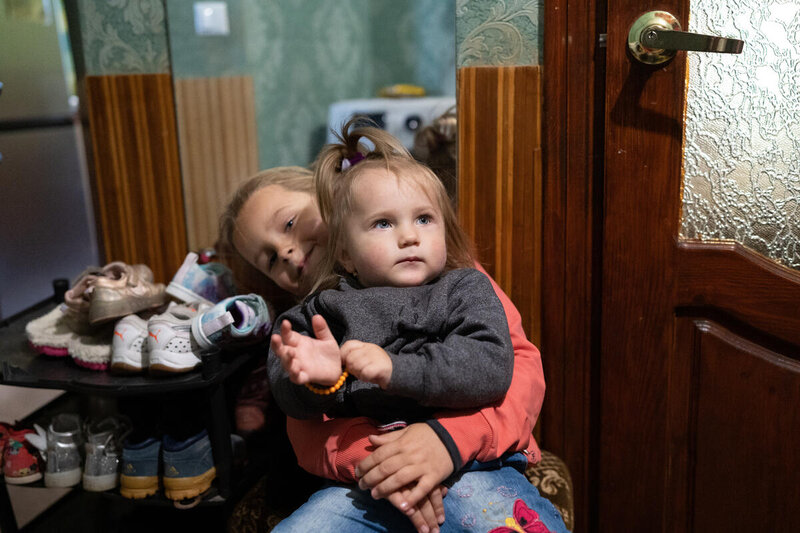
Marianne Ward spent Orthodox Christmas Day on Ukraine’s shifting frontlines, visiting a community in Orhikiv, east of Zaporizha, that had been cut off for months from humanitarian assistance.
“The families were all living underground, in a basement, with improvized wood stoves for heating,” says Ward, the World Food Programme’s (WFP) Deputy Country Director in Ukraine, of the visit with other United Nations partners.
“There were about 68 children living in that environment,” she adds. “That’s not an appropriate way to spend a really cold winter.”
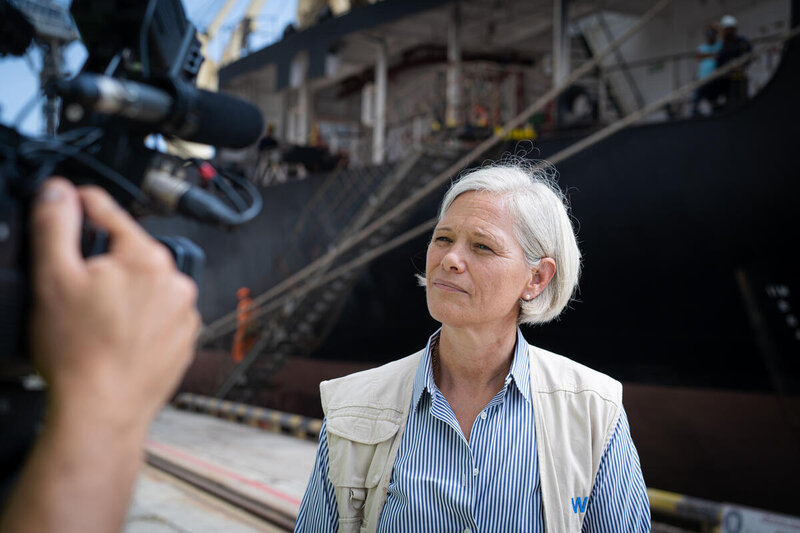
The frontlines of Ukraine, which nears the first anniversary of a devastating war, are more than 2,000 km from Davos, Switzerland, where world leaders and influencers are attending this week’s World Economic Forum, or WEF.
But the war’s fallout — which has sent global food and energy costs soaring, deepening hunger especially in the poorest countries, and pushing many nations into recession — tops the Davos agenda. A recent WEF survey found the cost-of-living crisis is considered to-day’s biggest global risk — ahead of the catastrophic, longer-term threats of biodiversity loss and climate change.
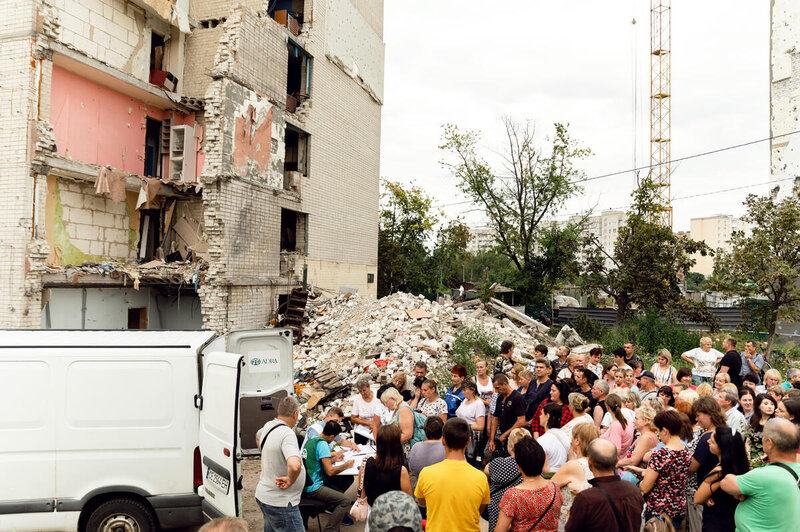
“We're facing an unprecedented food and nutrition crisis right now – and it's hitting women and young children the hardest,” tweeted WFP’s Executive Director David Beasley ahead of Davos, at a time when 828 million people are uncertain about their next meal. “Together we can, and must, give them a chance to survive and thrive.”
Inside Ukraine, nearly a year of war has left one in three families food insecure, 18 million people needing humanitarian assistance, and displaced more than one-third of the country’s population.
It has crippled Ukraine’s energy infrastructure as bitterly cold weather bites, decimated livestock and left many fields littered with landmines and other explosive devices, compounding challenges facing farmers this year.
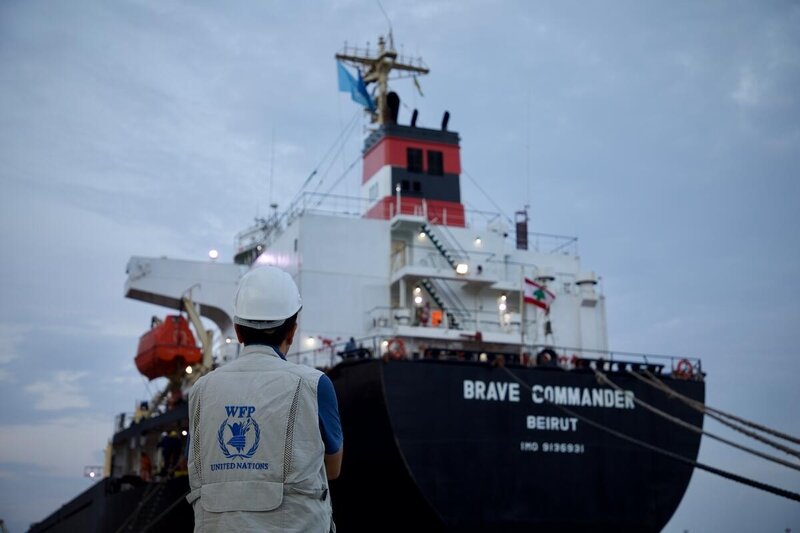
“It was the breadbasket of the world, and certainly the breadbasket of WFP — our single largest source of grain in the world,” says Ward of Ukraine, whose exports fed an estimated 400 million people outside the country before the war. “And if the electricity grid shuts down, it makes it harder for food to be produced, processed and moved.”
Power and water cuts are also complicating the humanitarian response and driving up needs in Ukraine. Electricity and water are spotty at best. At work and at home, surviving winter is a matter of layering up against the cold and hoping for a little tepid heat — and being lucky enough to eat.
Meanwhile, air raid warnings send humanitarian staff and ordinary Ukrainians alike diving into shelters for hours on end.
“We sit there in the bunker and we hear boom, boom, boom,” Ward says of time — amounting to a whole month — that WFP staff have spent in shelters.

Even so, and supported by a raft of private and public sector partners, including Ukraine’s government, WFP and other humanitarian agencies are delivering.
On any given month, WFP reaches roughly three million Ukrainians with food assistance, from ready-to-eat meals for families on the frontlines, to cash assistance in places like Odessa, where banks and markets are functioning.
The assistance reaches families like that of 36-year-old Oleksandra, who fled the conflict-ridden Kherson region last year without their savings.
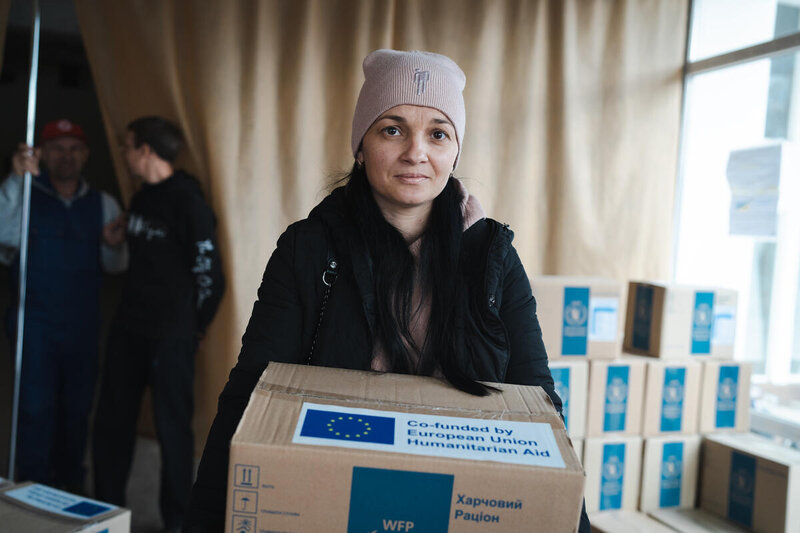
“This assistance is priceless,” says Oleksandra, who was worried she would not be able to feed her son and now lives in Pervomaisk, a city further north.
Nearly all WFP food distributed in Ukraine is sourced locally, as we work with businesses like bakeries that supply the bread that reaches front-line and other hard-hit communities. That and cash assistance offer a boost to Ukraine’s economy that shrunk by at least one-third last year.
Many war-battered communities, like those around the southern port city of Kherson, have displayed remarkable resilience, Ward says, bouncing back soon after fighting eases.
“In about six weeks, some electricity is up and running,” she says. “Maybe people can get to a couple of ATMs and access some money.”
Even without cash, WFP agreements with two major supermarket chains allow Ukrainians to procure food with vouchers “and start having a normal life again,” she says — and more diverse diets.
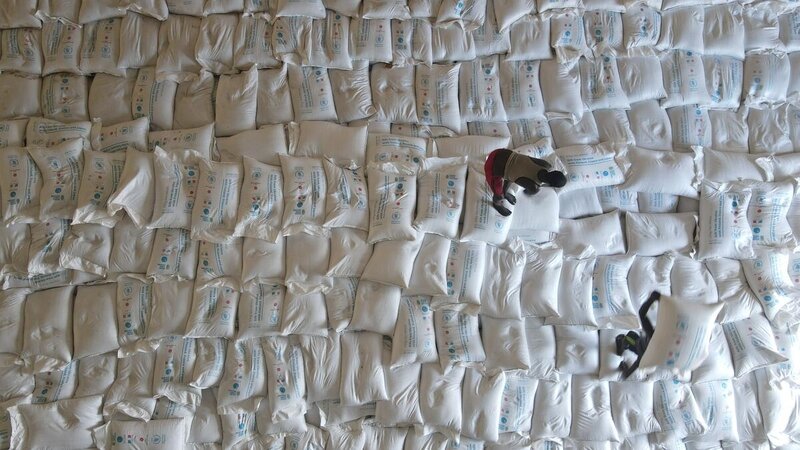
More food is also reaching some of the world’s most fragile communities, with some 17 million metric tons of food exported from Ukraine to date, thanks to an agreement opening a maritime corridor from some of the country’s Black Sea ports. That has helped to bring down global food prices — although they remain at a 10-year high.
WFP alone has transported 380,000 tons of wheat to support our operations in countries like Ethiopia, Yemen, Afghanistan and Somalia, where some communities face catastrophic hunger.
“The humanitarian grain is incredibly important for those in need,” Ward says. “But by bringing down global prices, we can help everybody.”
Within Ukraine, WFP has supported the Food and Agricultural Organization of the United Nations (FAO) in moving massive temporary storage units to farms to help ease grain storage pressures.
“FAO did a great job getting those units out to farmers across the country,” Ward says.

With the next farming season looming, WFP will partner with FAO and Ukraine’s government to support smallholder farmers in a country now considered among the world’s most heavily mined.
“Demining and investing in demining will be the next big thing,” Ward says. An effort is now underway to bring in specialized demining companies, especially humanitarian deminers.
“The faster we can get some of these farming communities up and running, the faster they can contribute to the economy,” and to food diversity, she adds.
But today’s challenges—including contracting companies to deliver food to Ukraine’s risky frontlines—are daunting.
And misery during these harsh winter months is mounting.
“When you go along the streets of Kyiv, you see people selling their possessions,” Ward says. “They’re selling warm coats, they’re selling books. A lot of people are really suffering.”
